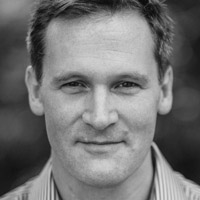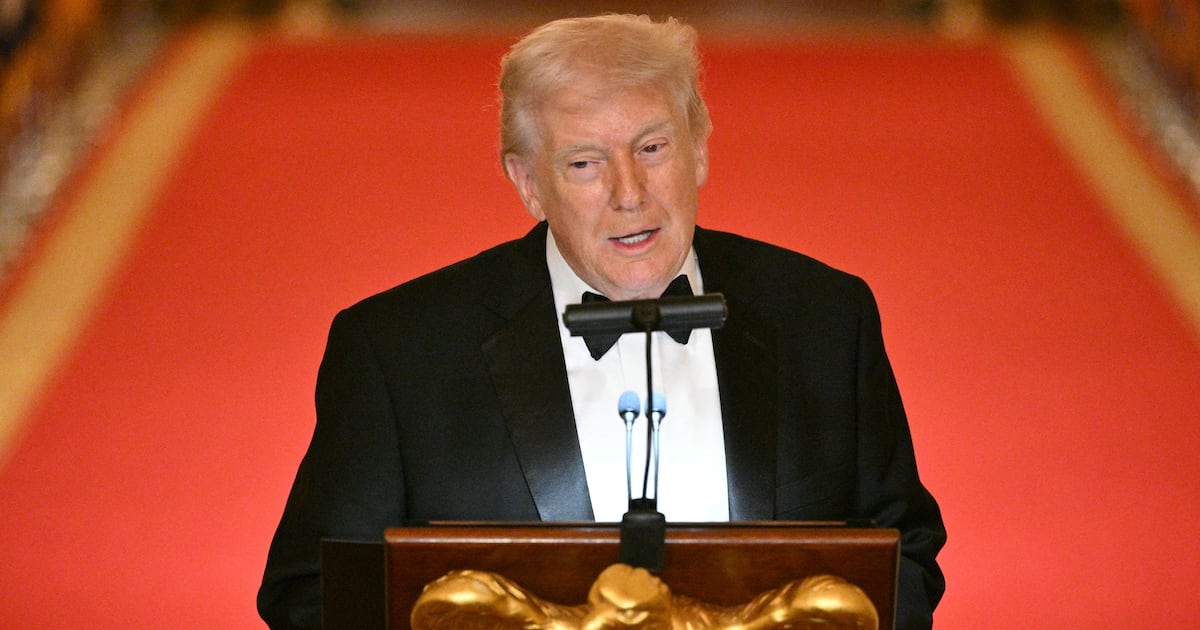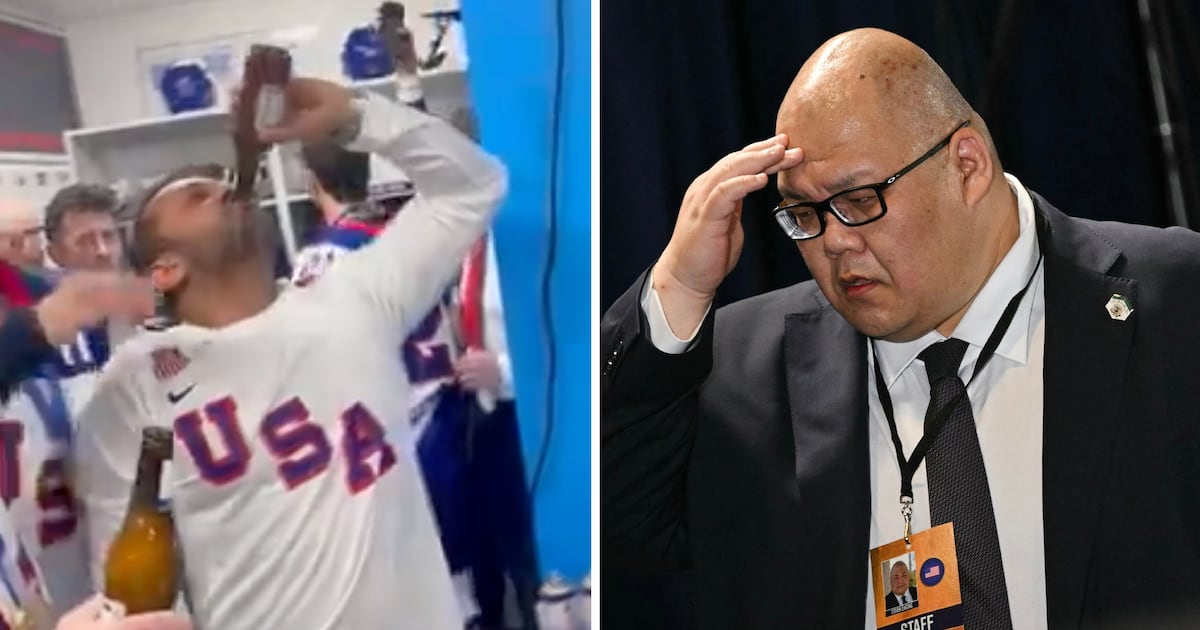A decade ago, my sister, who lives in Richmond, came out. I was worried that she would have a difficult time in then-red Virginia. But soon enough, she met the social worker she later married, and I was hanging out with their new friends at a Carytown bar named Babe’s. On warm summer nights, beer in hand, watching healthy, cheerful women spike volleyballs in the bar’s backyard sand court, it was easy to pretend we weren’t in the midst of a fetid wave of de jure discrimination. But we were.
A couple of years later, I was working for the governor of Virginia, and George W. Bush was president. That was the year of the traditional mid-term congressional reversal, and so Karl Rove poisonously orchestrated a wave of statewide “marriage protection” referenda to goose the Republicans’ base vote. Colorado, Tennessee, Alabama, South Carolina, South Dakota, Idaho, and Wisconsin all passed constitutional referenda banning same-sex marriage. So did Virginia.
The machinery of government was denying something only government could give—a marriage license—to a minority that included my sister. Just before the Constitutional Convention, James Madison had fretted about precisely this problem, that states might start “oppressing the minority within themselves.” Madison recommended a congressional veto on all state legislation. When that didn’t happen, the country ended up with judicial review instead.
My sister and her partner moved on with their lives. They found work-arounds. In 2008, when she and her partner wanted to memorialize their commitment, they traveled to Canada to get married. They had a party later on in Richmond with their friends, which I found at once happy but disquieting. Because what was their status in Virginia, exactly?
Meanwhile, the discriminatory legislation continued sweeping the country, including California’s Proposition 8, passed by 52.24 percent of voters in 20008. But then the floodwaters began receding in 2010, with a case against Prop 8 named Hollingsworth v. Perry, which ultimately led District Judge Vaughan Walker (himself a gay man) to declare Prop 8 unconstitutional. In 2013, the U.S. Supreme Court upheld Walker’s ruling, and Prop 8 was dead. The Court also ruled, in United States v. Windsor, to strike down the federal Defense of Marriage Act.
Today, 19 states and Washington, D.C. have legalized same-sex marriage. Most recently, a federal judge in Wisconsin struck down that state’s constitutional amendment.
This is what history feels like. Two new books try and explain what happened, and they both focus on Perry as tipping-point: Redeeming the Dream: The Case for Marriage Equality, by David Boies and Theodore B. Olson, the two litigators who successfully convinced Judge Walker to strike down Proposition 8, and Forcing the Spring, by Jo Becker, the New York Times journalist who followed, for five years, the case from the inside.
Taken together, the two books track almost exactly the same incidents and characters, yet, Rashomon-like, produce starkly different accounts. Redeeming the Dream is the legal equivalent of Terminator III, a technical précis of a sophisticated litigation juggernaut by two master craftsmen. Forcing the Spring, on the other hand, is the reality TV version—an exposé of all-too-human drives and desires and squabbles among the many players who drove the litigation forward.
Both books, in their own ways, are trying to take (Boies and Olson) and give (Becker) credit. But as Tolstoy observed in the famous last chapter of War and Peace, it’s hard to thank any single individual for altering history; more often, the ship of state alters course only because tides are vastly shifting underneath. As Harvard legal scholar Michael Klarman has documented, even on Brown v. Board of Education, only a federal statute, the Civil Rights Act, actually stopped segregation, and then only a decade later.
On Perry, in fact, the Supreme Court didn’t rule for marriage equality. It allowed Walker’s ruling to stand on technical “standing” grounds, meaning that other states were free to continue discriminating. Yet Boies and Olson confidently claim credit not only for a fine legal victory but for changing the country with their lawsuit. Indeed, they boast about their national PR campaign to show this unlikely pair had the “courage of our convictions,” including an op-ed by Olson in the Wall Street Journal decrying the bans for violating “minority’s basic human rights.” This seems like a bit too much bantam strutting, when the jury is literally still out in much of the country.
Jeffrey Toobin’s 2002 book on Bush v. Gore, Too Close to Call, lingers in the background. Toobin’s basic verdict was that Democrats were too wishy-washy to win Bush v. Gore. Al Gore’s lawyer, Boies—brilliant as he was—couldn’t overcome Bush’s lawyer, Olson, who out-muscled him with a multi-faceted strategy that left no flank uncovered, no front unconquered.
Boies and Olson became friends after the case (the story of their families biking together in Europe deserves another book) and then joined forces on Perry to apply the central lesson of Too Close to Call: demolish your enemy. It’s not a John Grisham tale; the two master litigators never feel like underdogs and proudly take on the case at the top of their game. The book is about how, through the combined force of private jets, armies of associates, avalanches of depositions, and celebration lunches at steak houses, David, at long last, became Goliath.
Each author includes an initial chapter titled, “Why I Took the Case.” From the beginning, Olson says he was “shocked” by Proposition 8, which “seemed wrong, gratuitously hurtful to gays and lesbians, and wholly inconsistent with my views as to what California—and America—is all about.” Boies channels real anger as well. The “common caricatures” of gays in America, he writes, were “no more realistic reflections of the average gay person than earlier blackface caricatures had been realistic reflections of the average African American.”
With this powerful shared passion, Olson and Boies set out to crush the case. Their obstacles include the opposition of the traditional gay national leadership to a litigation strategy; Lambda Legal, for example, argues that a federal lawsuit is “risky and premature.” Boies recounts how he overcame those obstacles by compelling arguments. “First,” he writes, “I believed we would win.”
When picking their plaintiffs, they want gay couples who would emanate the virtues of marriage itself—stability, reassurance, partnership—“surface ordinariness.” Aided by Democratic PR professionals Chad Griffin and Kristin Schake, they find them. They proudly recount one key witness saying same-sex marriage enhances “the stability of that household formation, its contribution to social order, to economic benefit, to governance (138).”
The lawyers ruthlessly expose the evidence of impermissible animus in “rather poisonous pro-Prop 8 campaign rhetoric,” such as the claim from Bill Tam of the Sharon Chinese Baptist Church of San Francisco that gays would “want to legalize prostitution” before “legalizing having sex with children.”
Boies eviscerates his victims while describing just how they taste, writing“[I]t is human nature to want to be seen in the best light, and to get along with others. This can be especially true when we feel uncomfortable, or feel our integrity or competence is under attack.” With such material, Hannibal Lecter might as well do the audio version.
And there’s the rub: it just seems too easy. The two masters declare their credo: “A trial is preparation, preparation, preparation, and meticulous execution.” In the end, their opponent, the hapless conservative attorney Chuck Cooper, seems doomed by Boies and Olson’s total war approach. Boies and Olson call 17 skilled witnesses, whereas Cooper calls only two witnesses, who Boies easily tears apart. “God, their witnesses were so awful!” Olson exclaims to Boies at the end of trial. “I know,” Boies responds.
And why can’t Cooper put up a better defense? Because he can’t raise the funds, marshal more compelling witnesses, and put together better arguments. His cause, like a rusty old jalopy, is falling apart before he turned the key. When Judge Walker grills him on the key question of how same-sex marriage could “harm opposite-sex marriage,” Cooper admits, “Your Honor, my answer is: I don’t know. I don’t know.”
They’re strongest on the legal thunderclaps: the fact that Proposition 8 was actually harming gay and lesbian Californian couples and their 40,000 children. When Boies asks Jeff to describe, on the stand, his feelings for his partner David, and Jeff says, “[I] want nothing more than to marry him,” I blinked back tears.
But there are also some off-notes. Olson praises Boies as “better at cross-examination than any trial lawyer I have ever seen.” Boies reciprocates by describing Olson “dismantling Cooper’s arguments like an expert shooter hitting one clay pigeon after another.” This praise party gets a little tiresome.
While Boies and Olson mostly concentrate on their legal derring-do, Jo Becker highlights the human beings and relationships behind Perry. Though the books travel the same river, Becker quickly heads for the rapids, beginning with her much-debated first line: “This is how a revolution begins.” Andrew Sullivan has attacked Becker for under-representing the history of the same-sex marriage movement, and it’s true that Forcing the Spring reveals a sort of Stockholm Syndrome where the intimacy of this embedded reporter with her subjects (she reported this story for five years!) often takes over.
But Becker also strangely elides herself from her story, in the process removing a narrative warmth and authorial evolution that could have strengthened and insulated the book from charges of false objectivity. Welded to the book’s formal journalistic structure, her personal notes seem awkward, such as when she writes that her friend Kristina Schake “looked like the kind of girl who might have once graced a 1950s pin-up calendar.”
The book is strongest on the gems gathered through a fine sieve of research the principals themselves don’t share. Becker reports that when a college-age Olson traveled to Texas with his debate team and a restaurant wouldn’t serve a black teammate, Olson “went into the kitchen, pushed the cooks aside, and made his teammate breakfast.”
As an example of the differences between these two books, there are the different descriptions of the moment in which Cooper noxiously attacks Judge Vaughan Walker’s sexuality in his appeal of his ruling. Boies and Olson downplay the issue, writing: “His reputation was as a smart, fair, and even-handed judge. We could not ask for more than that.”
But Becker attains much greater depth by interviewing the judge. About coming out as a lawyer, the 65-year-old judge tells her, “You think that you can’t be yourself and live the life you want to live.” The story about Walker falling in love with a physician, who becomes his partner of many years, is moving.
Becker also nicely mines her interviews with Chuck Cooper, who complains to her about the “Bataan death march” difficulty of trying the case in five months—a strict timeline that Boies and Olson pushed for, knowing it would benefit their disproportionate resources.
When the Supreme Court bunts Prop 8 back to California on standing, Boies tries to console Olson on their failure to achieve a Brown-type broad ruling. “Take care, my friend,” Boies says to a disconsolate Olson. “It hasn’t quite sunk in yet.”
Throughout, the quiet moral urgency of Becker’s narrative sneaks up on you. Becker reports that a 35-year-old lesbian associate at Gibson Dunn who married her partner during the brief window of legality in California admitted she still had a problem calling her partner “wife,” because it sounded “pretentious.” But “I know that if we don’t claim this language,” she admits, “it will never be ours.”
I was recently in Richmond for my sister’s baby shower. It was a joyous affair, attended by many of the same couples I first met years ago, their children running around like children around the world. My sister’s baby will be born in a country that seems to be quickly improving. But many states (including Virginia) still have these plainly discriminatory laws on the books, and many gays and lesbians still feel harmed by their own governments.
When these bans go, as it seems they must (struck down by principled federal judges or removed by courageous state legislators), we will have not only Boies and Olson to thank, but thousands of other protagonists for throwing them into the dustbin of history, where they belonged all along.






